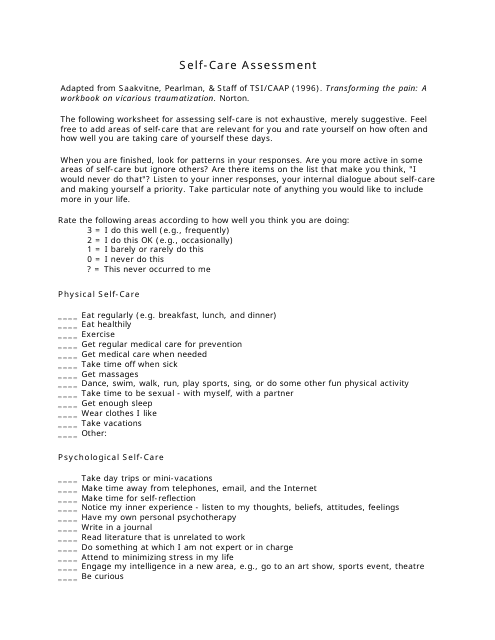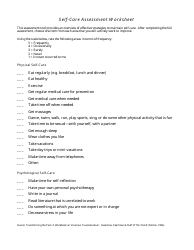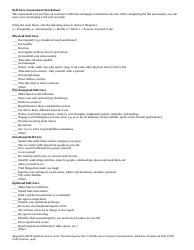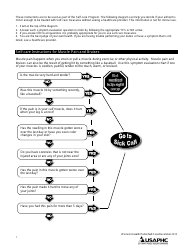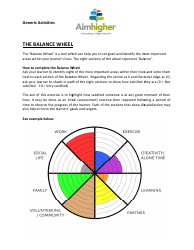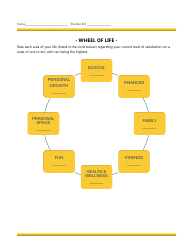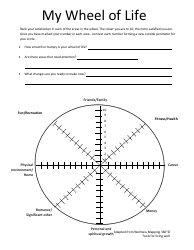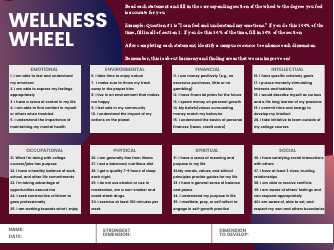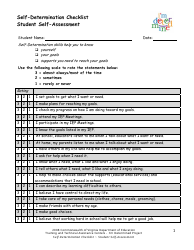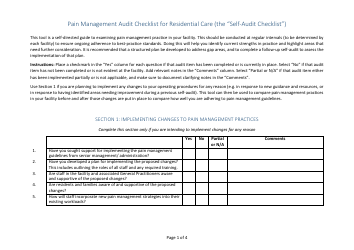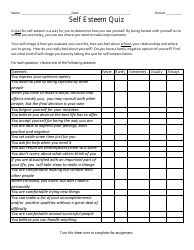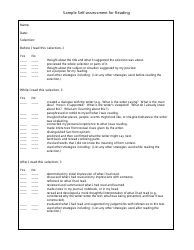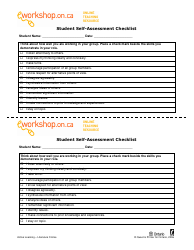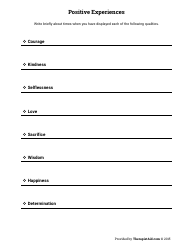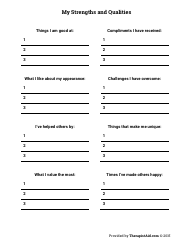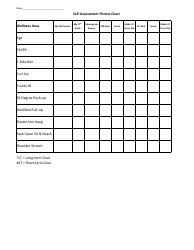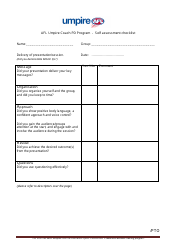Self-care Assessment
A Self-care Assessment is a valuable tool that helps individuals determine how well they are taking care of their overall wellbeing. This assessment can cover various areas including physical, mental, emotional, spiritual, personal, and professional aspects. The purpose of this assessment is to identify areas where the person might be neglecting self-care practices, such as exercise, healthy eating, stress management, sleep, and personal hobbies. It can also help detect signs of burnout, stress, depression, or other mental health issues. The results from a self-care assessment can then be used to create a personalized self-care plan. For healthcare professionals, it can help to monitor patient's capabilities to manage their health and wellness. Overall, the purpose of a self-care assessment is to promote healthier habits, improved stress management, and better overall well-being.
The Self-care Assessment is typically filed by individuals themselves in order to better understand their own self-care habits and needs. This can be individuals experiencing mental health issues, people looking for ways to improve their lifestyle, or even healthcare professionals seeking self-care strategies. It's commonly used in medical and therapeutic settings including hospitals, clinics, or psychological counselling centers. This document is not country-specific as it focuses on personal health and well-being.
FAQ
Q: What is a self-care assessment?
A: A self-care assessment is a tool that helps individuals determine how well they are taking care of their physical, emotional, psychological health and well-being. The assessment helps indicate areas where individuals might need to focus more attention to improve overall self-care and wellness.
Q: Why is self-care important?
A: Self-care is crucial for maintaining a healthy relationship with oneself and others. It helps reduce stress, enhances our productivity, boosts mental health, and staves off illness. By neglecting self-care, one could experience a variety of negative effects including long-term health complications and emotional instability.
Q: How can a self-care assessment be conducted?
A: A self-care assessment can be conducted using various tools and questionnaires that measure different aspects of self-care such as physical, emotional, psychological, and spiritual care. These tools typically require responses to a series of statements or questions about behaviors and habits related to self-care.
Q: What is included in a self-care plan?
A: A self-care plan typically includes activities that cater to different aspects of self-care like physical care (exercise, diet, sleep), emotional care (stress management, relationships), psychological care (therapies, meditation), and spiritual care (prayer, yoga, meditation). These plans are individualized based on the results of a self-care assessment.
Q: How often should a self-care assessment be conducted?
A: Purposes and requirements vary from person to person. However, it's generally advised to take a self-care assessment whenever you feel significant changes in your well-being, or as a regular check-in every few months.
Q: What are some examples of self-care activities?
A: Examples of self-care activities include regular exercise, balanced diet, adequate sleep, mindfulness and meditation, maintaining social connections, participating in hobbies or activities you enjoy, and getting regular healthcare check-ups.
Q: Is self-care only about physical health?
A: No, self-care encompasses more than physical health. Besides caring for your physical well-being, proper self-care also involves taking care of your mental, emotional, and spiritual health.
